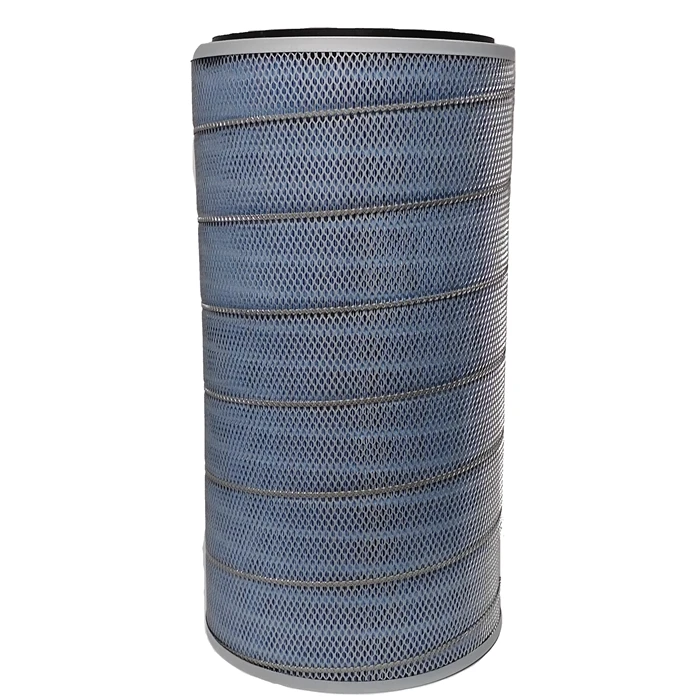 Tel:
+8615930870079
Tel:
+8615930870079
Déc . 09, 2024 22:44 Back to list
Optimizing Inlet Filters for Gas Turbine Performance and Efficiency
The Importance of Gas Turbine Inlet Filters
Gas turbines play a pivotal role in energy production and power generation due to their efficiency and reliability. However, their performance can be significantly affected by the quality of the air entering the turbine. This is where gas turbine inlet filters come into play, serving as a critical component in maintaining optimal performance and longevity of gas turbines.
Understanding Gas Turbine Inlet Filters
Gas turbine inlet filters are designed to remove particulate matter, dust, and pollutants from the air before it enters the turbine. The air intake in gas turbines is usually larger than that of traditional combustion engines, making it more susceptible to contaminants. These filters are essential in protecting the turbine from harmful debris that can lead to erosion, fouling, and eventual failure.
Inlet filters can be classified into several types based on their design and filtration method. These include mechanical filters, electrostatic filters, and high-efficiency particulate air (HEPA) filters. Each type has its own advantages and specific applications, depending on the operational environment and the level of air quality required.
The Working Principle
Gas turbine inlet filters work on a simple principle of filtration, capturing particles from the incoming air stream. Mechanical filters, for example, utilize a dense matrix of fibers to trap larger particles through a process known as inertial impaction. HEPA filters, on the other hand, can capture much finer particles, achieving efficiencies of 99.97% for particles as small as 0.3 microns.
To maintain effective performance, these filters must be monitored and maintained regularly. Over time, filters can become clogged, increasing pressure drop and reducing airflow into the turbine. This can lead to decreased efficiency and increased fuel consumption. Therefore, monitoring pressure differential across the filters is essential to schedule timely replacements or cleanings, thereby ensuring the turbine operates at peak efficiency.
gas turbine inlet filter

The Impact on Performance and Longevity
The quality of the air entering a gas turbine has a direct correlation with the efficiency and operational life of the turbine. Dirty air can lead to a phenomenon known as fouling, where contaminants deposit on the compressor blades. This buildup reduces aerodynamic efficiency, causing a decline in overall performance and increasing the risk of unexpected outages.
Moreover, the presence of abrasive particles can cause significant wear and tear on turbine components. For instance, eroded blades can result in reduced airflow, imbalanced forces, and ultimately mechanical failure. Regular maintenance of inlet filters minimizes these risks, promoting a healthier operating environment for the gas turbine.
Environmental Considerations
In addition to enhancing performance, gas turbine inlet filters also contribute to environmental protection. By filtering out harmful particles and pollutants, these systems help reduce emissions produced during the combustion process. This is particularly relevant in today’s context, where there is increasing scrutiny on air quality and environmental sustainability.
The implementation of advanced filtration technologies not only meets regulatory standards but can also improve public health by minimizing airborne contaminants. Companies investing in high-quality inlet filtration systems often enjoy a dual benefit—enhanced operational efficiency and a positive corporate social responsibility profile.
Conclusion
In conclusion, gas turbine inlet filters are an indispensable part of turbine operation and maintenance. They play a vital role in ensuring that the turbines receive clean air, which is crucial for efficient and reliable performance. By investing in the right filtration technology and committing to regular maintenance, operators can significantly extend the life of their gas turbines while maintaining high operational standards. As the energy sector continues to evolve, the importance of effective air filtration will only become more pronounced, highlighting the critical need for robust gas turbine inlet filter systems.
-
Types and Applications of Air Filtration CartridgesNewsJul.28,2025
-
The Role of Gas Turbine FiltersNewsJul.28,2025
-
Mastering Air Filter Cartridge UseNewsJul.28,2025
-
Advanced Turbine Filters for Modern Gas TurbinesNewsJul.28,2025
-
Cellulose Air Filter Cartridge Advantages in Dust FiltrationNewsJul.28,2025
-
Cellulose Filters for Air Particle ReductionNewsJul.28,2025

 Email:
Email:





